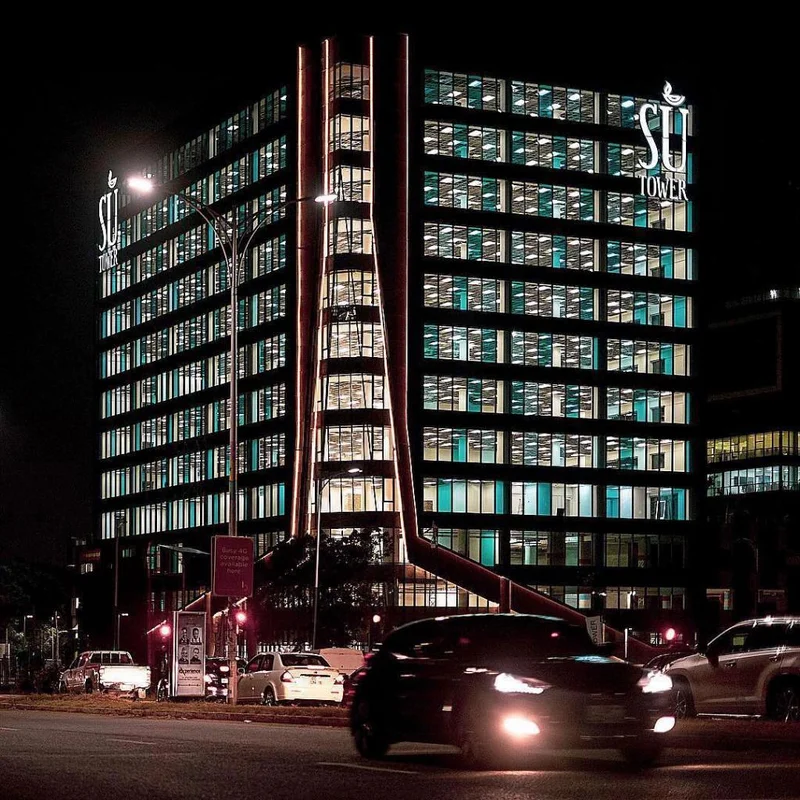Okay, folks, buckle up, because what's happening in Accra, Ghana, right now isn't just a series of isolated events—it's a convergence, a perfect storm of progress that could redefine how we think about development, sustainability, and global collaboration. Seriously, I’m getting chills just writing about it.
We’re seeing a groundswell of activity in Accra, a series of initiatives that, when viewed together, paint a picture of a city—and a nation—on the rise. It's not just one thing; it's the synergy that’s truly exciting.
First, there's the Backyard Community Club, a brand-new tennis court and sports facility. Sounds simple, right? But this isn't your average country club. It's the first structure ever built using a fully locally produced precast rammed-earth module. Think about that for a second. Locally sourced, sustainable materials, cutting-edge design by DeRoche Projects, and a focus on community—it’s a trifecta of awesome. It's not just about tennis; it's about showing the world what’s possible when you prioritize local expertise and sustainable architecture. This isn't just a building; it's a statement. (You can Check out Backyard Community Club, Ghana's new tennis court.)
But wait, there’s more! Accra is also set to host the 11th Session of the UN Committee on Geospatial Information Management for Africa in November. I know, I know, "geospatial information management" sounds like something straight out of a sci-fi movie, but trust me, it's crucial. This is all about using geographic and location-based data to support sustainable development. We're talking about using data to make informed decisions about public policy, infrastructure planning, natural resource management, and even disaster response. It’s about empowering countries to use information to build a better future.
And then there’s the "Accra Reset," an initiative spearheaded by African leaders to break free from the legacy aid system and forge a new path toward health sovereignty and equitable global cooperation. This isn't just about healthcare; it's about redefining the entire development model, pushing for new governance, business, and financing models that prioritize national ownership and sustainability. It’s a bold move, a declaration that the old ways of doing things just aren't cutting it anymore.
Finally, let’s not forget the African Land Forces Summit, co-hosted by the U.S. Army and the Ghana Armed Forces. Now, I know what you might be thinking: "What does a military summit have to do with innovation and sustainability?" But hear me out. This summit brings together leaders from across Africa and partner nations to address shared security challenges. It's about fostering collaboration and building crisis response capacities. And in a world facing increasing instability, that kind of cooperation is more important than ever.

All these events, happening in the same city, at roughly the same time—it’s not a coincidence. It's a sign that Accra is becoming a hub, a focal point for innovation, sustainability, and global collaboration. This reminds me of the Renaissance in Florence – a concentration of ideas, talent, and resources that sparked a period of unprecedented progress.
It's like all the pieces of a puzzle are finally falling into place. You have sustainable architecture, data-driven development, a push for equitable global cooperation, and a focus on regional security—all converging in one city.
What does this mean for us? It means that the future is not some distant dream; it's being built right now, in places like Accra. It means that sustainable development isn't just a buzzword; it's a tangible goal that can be achieved through innovation, collaboration, and a commitment to local ownership.
But, and this is important, we need to be mindful of the ethical considerations. As technology advances, we need to ensure that it's used for the benefit of all, not just a select few. We need to be aware of the potential for misuse and abuse, and we need to have safeguards in place to prevent it. The power of geospatial data, for example, must be wielded responsibly, with a deep respect for privacy and human rights.
And what about the people of Accra? What do they think about all this? Well, if the comments I’ve seen online are anything to go by, they’re excited. One commenter on a local news site wrote, "Accra is finally getting the recognition it deserves! We have so much talent and potential here, and it's great to see the world finally taking notice." Another added, "This is just the beginning. Accra is going to be a major player on the world stage in the years to come."
Let’s be clear: Accra isn’t just a city; it’s a symbol. It’s a symbol of what’s possible when we embrace innovation, prioritize sustainability, and work together to build a better future. It's a beacon of hope, shining brightly on the African continent and beyond, and it’s a reminder that the future is not something that happens to us; it's something we create.